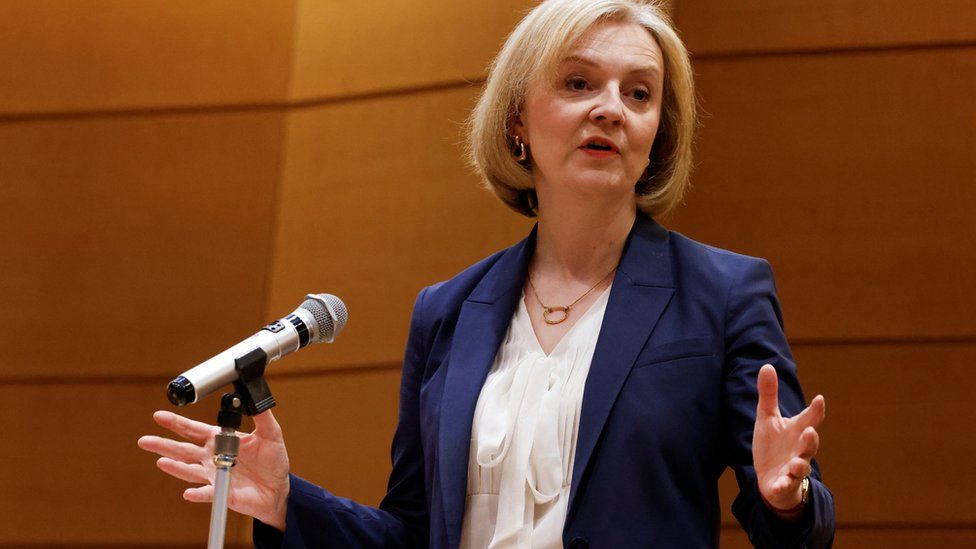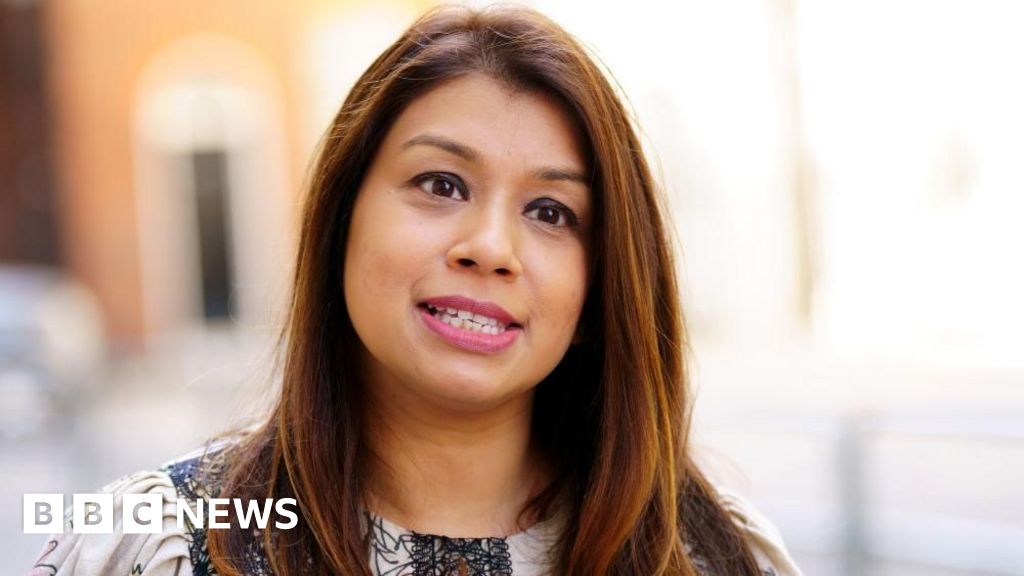ARTICLE AD BOX
 Image source, Reuters
Image source, Reuters
By Shaimaa Khalil & Stephen McDonell
BBC News
Former Prime Minister Liz Truss has called for ties with Taiwan to be boosted to combat threats from China, ahead of May's G7 summit in Hiroshima.
In a speech in Tokyo, she urged countries to send a message to Beijing that "military aggression towards Taiwan would be a strategic mistake".
It was her first public speech since she resigned in October.
Her successor Rishi Sunak has said China should be dealt with through "robust pragmatism".
Ms Truss, who was previously foreign secretary, put forward a number of policy recommendations for countries to support Taiwan, including reducing reliance on China in key industries, deepening economic ties with Taiwan, and accepting the self-ruled island into international organisations.
She also called for a more developed Pacific defence alliance so that Taiwan "is able to defend itself", and closer cooperation with Nato.
She added that "countries should find a way to elevate Taiwan's status".
Her speech was organised by the Inter-Parliamentary Alliance on China, an international campaign group that focuses on how democratic countries approach China.
The Japanese government said this week it would review its defence policy in the wake of the alleged Chinese spy balloon episode in the US.
Asked about Ms Truss's comments, Chinese foreign ministry spokesperson Wang Wenbin said: "I have yet to see the speech. But we are against distorting facts about China."
He added: "The Taiwan question is China's domestic affair. Allegations of economic coercion from China are unfounded."
'Warnings ignored'
China sees Taiwan as a breakaway province that will eventually come under its control, while Taiwan views itself as distinct from the Chinese mainland, with its own constitution and democratically elected leaders.
Ms Truss said the UK's previous approach of cultivating a close relationship with Beijing was a mistake, and that the UK had "ignored too many warning signs", including the Uyghur detention camps, as well as the "disgraceful dismantling of one country, two systems in Hong Kong".
"Since it was the free world which enabled China's rise, it must be the free world which challenges its economic dominance before it's too late," she said.
She said President Xi had "been very clear" in his ambition to "have control of Taiwan", and called on democratic countries to help protect Taiwan's status as "a beacon of freedom in the world".
"We must learn from the past. We must ensure that Taiwan is able to defend itself, and we must work together across the free world to do this," she said.
Her successor as prime minister, Mr Sunak, is facing pressure from some of his own MPs to take a tougher line on China.
In November, he said the so-called "golden era" of relations with China was over and the closer economic ties of the previous decade had been "naïve".
But he stressed "we cannot simply ignore China's significance in world affairs - to global economic stability or issues like climate change".

 1 year ago
31
1 year ago
31








 English (US) ·
English (US) ·